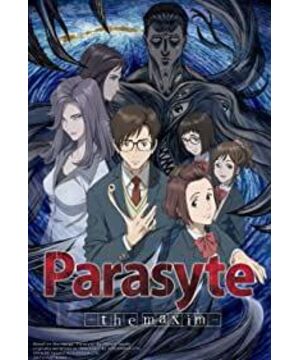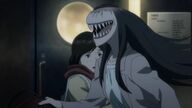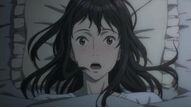Original Sin and the Sublime in Evolution
- see "Parasite: The Principles of Life"
text/empty language
Parasite is a tale of civilization and barbarism, alien and homogeneous, and its subtitle is "The Principles of Life," which were once dictated by religion and morality, and are now dictated by the theory of evolution. "Parasite" is one of many stories with a similar theme of showing the good and evil natures that lie deep in life, a condition that evolutionary principles make seem cruel and sublime.
【Original Sin of Evolution】
Parasitic beasts are some kind of beings whose physical strength is far stronger than human beings and occupy human minds. of course there are exceptions. The protagonist of the story, Shinichi, is a synthesis of mostly human beings and half parasitic beasts. This identity setting is a customary setting used to express the conflict between the different and the same. Through such a role identity, the protagonist can see the position of the alien while defending the original kind, and can also understand the alienated position.
This kind of alienation stance is shown in episode 14 by Migi (small right), who lives with Izumi Shinichi, and Tamura Reiko, who is interested in human thinking. Regarding human beings' belief that they have the right to exist, Migi said, "the concept of rights is originally unique to human beings." Its potential meaning is that when people face the threat of parasitic beasts, they think they have the right to live. This is just an artificial selfish excuse; the slaughter carried out by people is no more righteous than that of parasitic beasts. Parasitic beasts are monsters to humans, and in Tamura Reiko's view, "In the eyes of pigs, humans are monsters that unilaterally eat pigs." If the views of homogeneous and heterogeneous are combined, then the so-called morality in human civilization is obviously a selfish and high-sounding package of barbarism.
In this episode, Tamura Reiko heard the "facts" explained by the theory of evolution: all living things, including humans, are determined by selfish genes, and the human body is just a puppet manipulated by genetic genes; In terms of self-preservation, the species is not important, only the self; altruistic behaviors such as thoughtfulness and caring are essentially self-interested. As for the behavior of human beings to protect the environment, is it altruistic or selfish?
The answer to this question is expressed in episode 21 by a person who has taken refuge in the parasite camp: environmental protection is nothing more than a distorted concept developed by human beings for their own purposes - because the essence of environmental protection is to protect human beings themselves - if human beings If you really want to think about the environment or the ecosystem, then you must sacrifice yourself to maintain ecological balance - humans must consciously accept the role of parasitic beasts in population control - that is, accept humans as parasitic beasts' prey food chain order. From this radical speech, how crazy a thoughtful traitor can be. And the original sin of adapted human nature is so eloquently expressed by such a thoughtful traitor.
These views seem to be regarded as reasonable inferences from the theory of evolution, and environmental protection can only be understood in essence from an anthropocentric standpoint. In fact, there is no real "environmental protection", just like there is no real "selflessness", only "human self-protection" exists. Until environmental degradation threatens human existence, people don't seem to care about the life and death of other species.
The evolutionary picture of survival is brutal. When the theory of evolution rejects the religious creationism, it seems to reject the concept of original sin, but in essence, the theory of evolution makes original sin more deeply embedded in existence by explaining the facts. Because, in man's plan for his own survival, there is no real good in the moral sense, and the core of justice is the inescapable evil.
【The sublime of evolution】
No matter how convincing the facts explained by evolution may seem, that's not what Parasite preaches as absolute truth. Stories like "Parasite" preach a humanity that transcends objective constraints, a humanity that stems not from scientific stipulations, but from philosophical reflection.
Tamura Reiko is the most abnormal of the parasitic beasts, she is not almost completely determined by animal nature like other parasitic beasts, and she shows a philosophical stance. She realized that just thinking about hunting humans like beasts is not a long-term solution, so she wants to surpass her animal nature by seeking knowledge or loving wisdom like humans. When she faced the pursuit of three parasitic beasts, she won the victory by using the strategy of seeing through the characteristics of the parasitic beasts when she was not dominant in number and strength. "Know thyself" is the old adage of philosophy. And what she said to the dying parasitic beast, "Have you ever thought about where you came from and where you are going like a human being?" This is also a popularized philosophical theme.
As for the protagonist between humans and parasitic beasts, Izumi Shinichi has been seeking to know himself for a long time after he is no longer purely human. Regardless of identity or idea, Izumi Shinichi is not a machine driven by animal nature or a puppet dominated by selfish genes. In episode 15, Izumi Shinichi is horrified to discover in a dream that he has become a beast: this distaste for complete beast is presumably an essence of philosophical humanity as well. In the 21st episode, Izumi Shinichi wears a dress that says "Philosophia" (philosophy), probably because "Parasite" expresses more directly that it wants the protagonist to gain his own meaning in philosophy.
View more about Parasyte: The Maxim reviews










